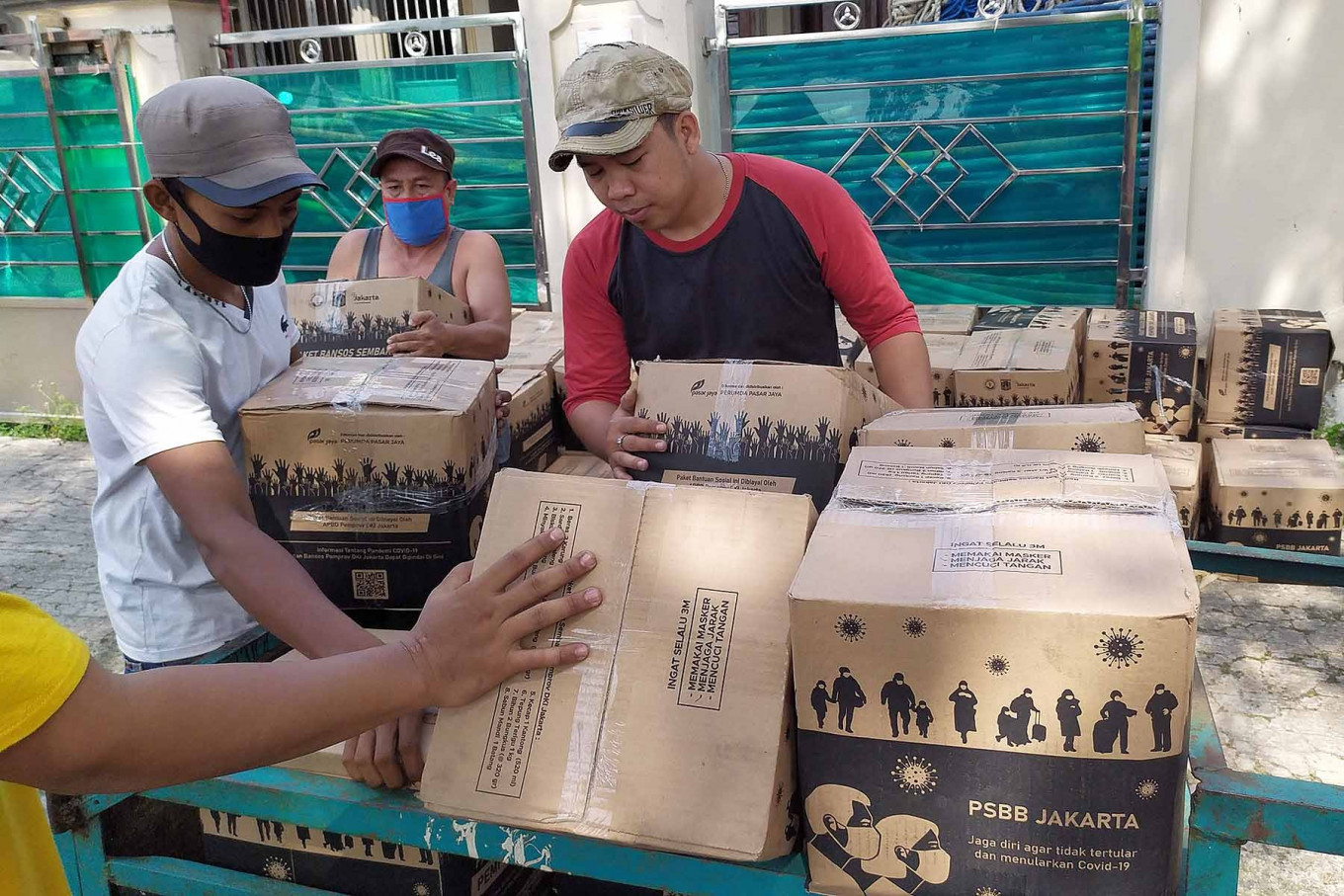Popular Reads
Top Results
Can't find what you're looking for?
View all search resultsPopular Reads
Top Results
Can't find what you're looking for?
View all search resultsWorld Bank forecasts even bigger GDP drop
Change text size
Gift Premium Articles
to Anyone
I
ndonesia’s economy could contract more than expected if the coronavirus pandemic remains uncontrolled, as Southeast Asia’s largest economy faces an “uneven and volatile” economic recovery, the World Bank says.
The Washington, DC-based development bank now projects Indonesia’s economy to contract by 1.6 percent this year under the baseline scenario; in June it had projected zero growth. However, the economy may contract even by 2 percent if the country fails to control the pandemic, according to the World Bank’s East Asia and Pacific Economic Update published on Tuesday.
“It is in countries like Indonesia and the Philippines that recovery will be much slower, because they have not succeeded in controlling the disease,” World Bank East Asia Pacific chief economist Aaditya Mattoo said during a virtual press briefing on Tuesday.
“It may be well into next year that Indonesia will come back to pre-pandemic levels of economic output, and it may take them even longer.”
The lender expects Indonesia’s economy to rebound next year by 3 percent to 4.4 percent.
The government has also revised down its economic projection for this year to a deeper contraction of between 0.6 percent and 1.7 percent, as pandemic fear and uncertainty have taken toll on consumer spending and business investment. This would mark Indonesia’s first economic contraction since the 1998 Asia financial crisis, when the country’s economy shrank 13.13 percent year-on-year (yoy).
The coronavirus-induced economic crisis will hit hardest informal sectors like hawkers and services in Indonesia, Mattoo went on to say.
“The traditional poor have not been hit terribly hard, as the government has done a remarkable job compensating them, but it is the new poor that are in deep distress, as they are not part of Indonesia’s social protection mechanism.”
The World Bank expects that 33 million to 38 million people in the East Asia Pacific will fall into poverty this year.
Countries will need to build capacity for smart containment by strengthening the capacity to test, trace and isolate, which would help to contain outbreaks with more targeted and less economically disruptive measures, Mattoo said.
In a bid to revive the economy, Indonesia has allocated Rp 695.2 trillion (US$46.7 billion) in stimulus spending and widened the budget deficit target to 6.34 percent of the gross domestic product (GDP), but disbursement of the funds has been sluggish so far because of red tape and other factors.
However, significant expenditure on stimulus and lower revenue may leave an indebted government less equipped to invest in infrastructure and growth, according to World Bank acting lead economist for Indonesia Ralph Van Doorn.
“It is important for the government to restore tax revenue and increase it to the emerging market levels, which has double the amount Indonesia collects in normal times,” he told reporters. “Otherwise fiscal consolidation to below 3 percent deficit will be done through reducing state expenditure, which would be the low-quality way of getting it back to pre-pandemic levels.”
East Asia Pacific countries, including Indonesia, will need to maintain “hard-won reputations for financial prudence” as governments seek central bank help to buy government bonds and fund fiscal deficit, the World Bank said in its report. “While these policies may be necessary today, credible commitments to transparency and to early restoration of financial discipline could help mitigate the risk of financial instability.”
The government and the central bank have agreed on a $40 billion burden-sharing scheme that will see Bank Indonesia (BI) buy at least $28 billion in government bonds and shouldering the costs.
The central bank has bought Rp 234.65 trillion worth of government bonds under the scheme as of Sept. 15, BI Governor Perry Warjiyo said on Monday. Of the total figure, BI has bought Rp 51.17 trillion worth of sovereign debt papers (SBNs) through auctions, as well as another Rp 183.48 trillion through private placement.
The government in its statement on Tuesday said it saw the World Bank’s publication as a reminder and important advice in its efforts to boost the effectiveness of its economic recovery program’s implementation and evaluation.
“In general, the World Bank’s outlook is still in line with the government’s latest assessment [...],” said the Finance Ministry's Fiscal Policy Agency head, Febrio Kacaribu, in the statement.
Previously, the Asian Development Bank (ADB) and the Organization of Economic Cooperation and Development (OECD) also projected a contraction of 1 percent and 3.3 percent, respectively, for Indonesia’s economy this year.










